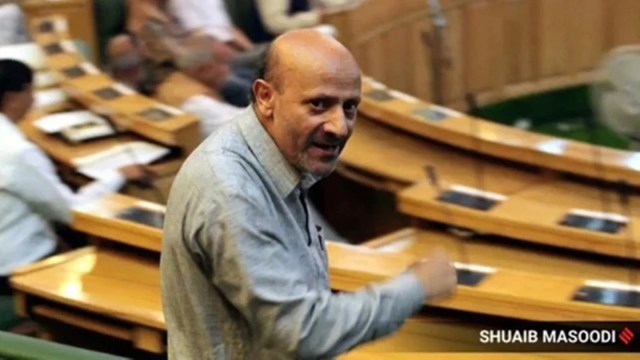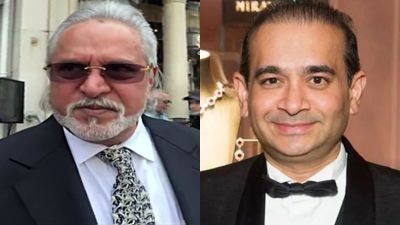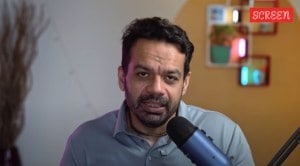J&K MP Engineer Rashid denied custody parole to attend Parliament session
Engineer Rashid, who defeated Jammu and Kashmir CM Omar Abdullah in Baramulla in the 2024 Lok Sabha polls, has been lodged in Delhi’s Tihar Jail since 2019 in a case of alleged terror funding.
 Sheikh Abdul Rashid, popularly known as Engineer Rashid, defeated Chief Minister Omar Abdullah in the 2024 Lok Sabha polls in Baramulla. (Express File)
Sheikh Abdul Rashid, popularly known as Engineer Rashid, defeated Chief Minister Omar Abdullah in the 2024 Lok Sabha polls in Baramulla. (Express File) A Delhi court on Monday denied custody parole to jailed Jammu and Kashmir MP Sheikh Abdul Rashid, popularly known as Engineer Rashid, to attend the Parliament session. The court will pronounce an order on his regular bail on March 19.
Custody parole is usually granted in case of emergencies. The relief was sought by his advocate Vikhyat Oberoi on the grounds that Rashid was a parliamentarian and needed to attend the session to fulfil his public duty. The Parliament’s Budget session resumed on March 10 and will last till April 4.
Engineer Rashid, who defeated Jammu and Kashmir Chief Minister Omar Abdullah in the Baramulla seat by over 2 lakh votes in the 2024 Lok Sabha polls, has been lodged in Delhi’s Tihar Jail since 2019 in a case of alleged terror funding.
Additional Sessions Judge Chander Jit Singh of Patiala House Court, who is currently hearing the case, had on September 10 last year granted Rashid interim bail to campaign for the Assembly elections in Jammu and Kashmir. He later surrendered in Tihar Jail on October 27.
On February 24, 2025, the Delhi High Court requested the trial court to expeditiously dispose of Rashid’s bail plea after the administrative side of the high court submitted that it had issued an order designating the trial court to try MP/MLA cases.
The bail plea had earlier been pending with the trial court, which was awaiting instructions on whether an NIA court or a designated MP/MLA court should decide his plea. The judge reserved order on his bail plea in August 2024 and requested the district judge to transfer the case to a court designated to try lawmakers, observing Rashid was now an MP.
Earlier in February, the court had granted him two-day custody parole and allowed the leader to attend parliamentary proceedings. While in Parliament, he spoke for just a minute.
On May 30, 2017, the National Investigation Agency (NIA) registered a case under Indian Penal Code section 120B (criminal conspiracy) and various sections of the Unlawful Activities (Prevention) Act (UAPA), 1967 against Lashkar-e-Toiba founder Hafiz Saeed and other “secessionist and separatist” leaders who, according to the NIA, “received and collected” funds through hawala channels in “connivance with active militants of…terrorist organisations Hizb-ul-Mujahideen, Dukhtaran-e-Millat, Lashkar-e-Toiba” to fund “terrorist activities” in Jammu and Kashmir.
Rashid was not named in the case at the time. He was also not among the 12 accused in the NIA’s first chargesheet filed on January 18, 2018, or in the first supplementary chargesheet, naming one accused, that was filed on January 22, 2019.
He was arrested on August 9, 2019, four days after the abrogation of Article 370 and the removal of J&K’s special status. Almost the entire political leadership of Kashmir, including three former chief ministers, were also placed under detention. Rashid was named an accused in the second supplementary chargesheet filed on October 4, 2019.
According to the NIA, he used various public platforms to “propagate the ideology of separatism and secessionism”, was closely associated with various terrorist organisations, and wanted to “legitimise” the United Jihad Council (UJC), a platform of anti-India militant groups in Jammu and Kashmir.







